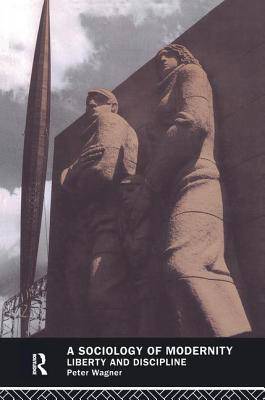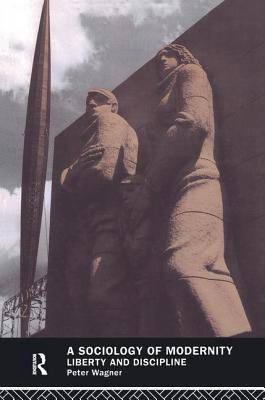
- Afhalen na 1 uur in een winkel met voorraad
- Gratis thuislevering in België vanaf € 30
- Ruim aanbod met 7 miljoen producten
- Afhalen na 1 uur in een winkel met voorraad
- Gratis thuislevering in België vanaf € 30
- Ruim aanbod met 7 miljoen producten
Zoeken
€ 213,95
+ 427 punten
Omschrijving
First Published in 2004. Confusion reigns in sociological accounts of the curent condition of modernity. The story-lines from the 'end of the subject' to 'a new individualism', from the 'dissolution of society' to the re-emergence of 'civil society', from the 'end of modernity' to an 'other modernoity' to 'neo-modernization'. This book offers a sociology of modernity in terms of a historical account of social transformations over the past two centuries, focusing on Western Europe but also looking at the USA and at Soviet socialism as distinct variants of modernity. A fundamental ambivalence of modernity is captured by the double notion of liberty and discipline in its three major dimensions: the relations between individual liberty and political community, betwen agency and structure, and between locally situated human lives and widely extended social institutions. Two major historical transformations of modernity are distinguished, the first one beginning in the late nineteenth century and leading to a social formation that can be called organized modernity, and the second being the one that dissolves organized modernity. It is this current transformation which revives some key concerns of the 'modern project', ideas of liberty, plurality and individual autonomy. But it imperils others, especially the creation of social identities as ties between human beings that allow meaningful and socially viable development of individual autonomy, and the possibility of politics as communicative interaction and collaborative deliberation about what human beings have in common.
Specificaties
Betrokkenen
- Auteur(s):
- Uitgeverij:
Inhoud
- Aantal bladzijden:
- 284
- Taal:
- Engels
Eigenschappen
- Productcode (EAN):
- 9781138177420
- Verschijningsdatum:
- 26/07/2016
- Uitvoering:
- Hardcover
- Formaat:
- Genaaid
- Afmetingen:
- 156 mm x 233 mm
- Gewicht:
- 530 g

Alleen bij Standaard Boekhandel
+ 427 punten op je klantenkaart van Standaard Boekhandel
Beoordelingen
We publiceren alleen reviews die voldoen aan de voorwaarden voor reviews. Bekijk onze voorwaarden voor reviews.











